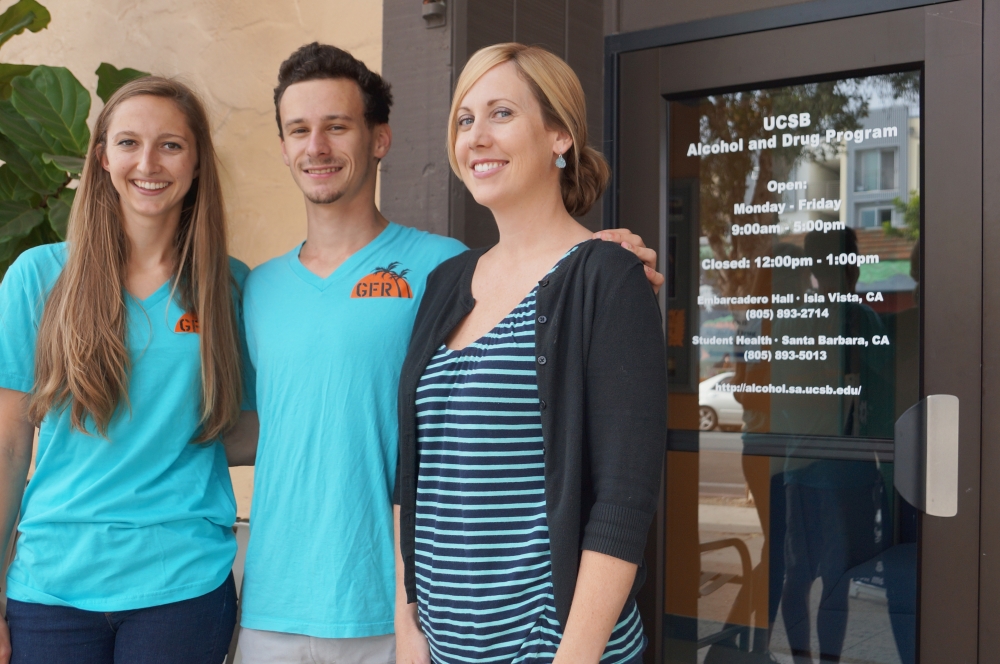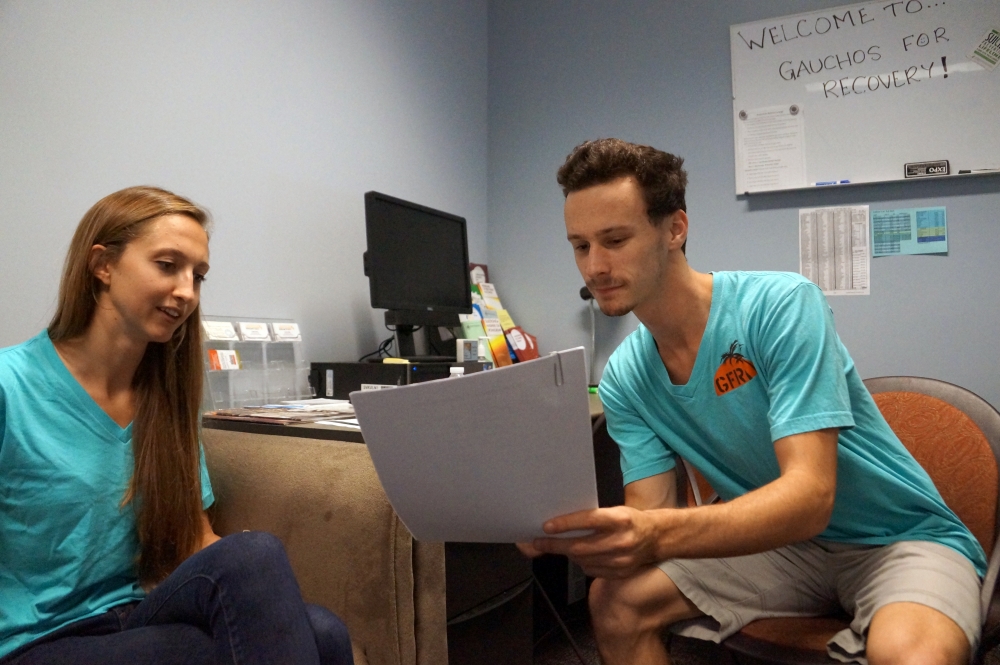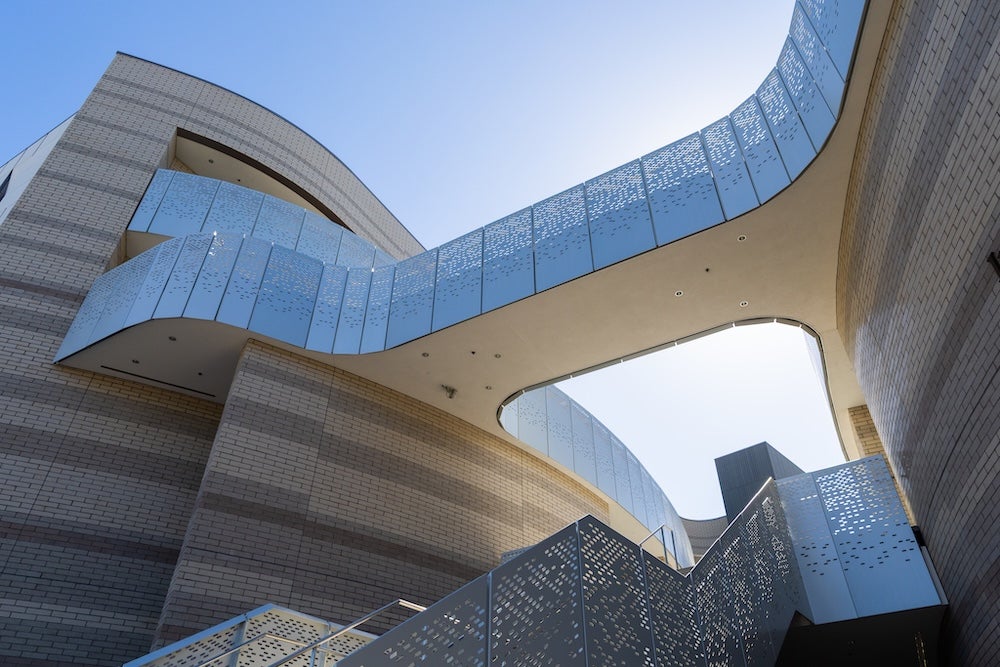Building a Community
Adam Daar has been in recovery since his early teenage years. Court-ordered to treatment for substance abuse at the age of 14, he bonded strongly with his drug counselor, committed to a 12-step program and has been sober ever since.
Now in his second year at UC Santa Barbara, he’s still moving forward — and giving back — by supporting fellow students facing similar challenges.
Daar is a peer mentor with Gauchos for Recovery, a student-centered initiative of the Alcohol & Drug Program (ADP) aiming to foster a sense of community among students in recovery — and to combat the stigma around being there in the first place. He and fellow peer Emily Bills host drop-in hours, run weekly anonymous meetings and make themselves available anywhere, anytime, for fellow students who need an ear, or a shoulder.
“When you’re seeking help, it’s all about who you can relate to and who you can come to trust,” said Daar, who purposely chose UC Santa Barbara for its vibrant social scene and robust support services for students in recovery. “If a student struggling with alcohol or drugs comes to our meeting, I can share my experience and tell them, ‘I’ve done that. I’ve felt that way. This is what I did and this is where I am now. And you can do it, too.’
“It’s so important to show them that they’re not alone, that there is help, and that there is a solution,” Daar continued. “I myself am evidence of that. I’m a student here at UCSB, too. I live in Isla Vista, too. This place was a huge draw for me, as a sober individual. This is an amazing school, and an amazing community, with some amazing people in it who do a lot more than party.”
Collegiate Recovery Conference
In recognition of that and, most important, as part of a commitment to support students in recovery, the Alcohol & Drug Program and Gauchos for Recovery are hosting a conference focused on the burgeoning collegiate recovery movement.
The 2015 California Unified Collegiate Recovery Conference (CUCRC), to be held November 7–8 at UCSB’s Corwin Pavilion, will bring together students in recovery as well as allies, advisors and community members to support the development of new, emerging and established collegiate recovery programs (CRPs). Founded and run the last three years by a student recovery group at UC Riverside, CUCRC in its fourth iteration will see attendees share strategies, successes, challenges and solutions in the growing push to build higher education communities of support for students in recovery.
“The idea of sober living in Isla Vista and other college communities does not compute for a lot of people, but not only is it possible — it can thrive,” said ADP’s director Jacqueline Kurta. “Students in recovery can thrive and be some of the most active and contributing members of the community, and have a regular, exciting college life. This conference is a great way for UCSB to step up and spread the word, to bring some attention to it and to celebrate it.”
Reducing the Stigma
CRPs such as the three-year-old Gauchos for Recovery are proliferating, as campuses across the country increasingly seek not only to enhance their recovery-related services, but also to embrace the students who need them. Doing so can be critical to those students’ success in recovery, and in school, according to Angie Bryan, a counselor and educator at ADP who also serves as the staff advisor to Gauchos for Recovery.
“Recovery support in a collegiate environment is really important,” Bryan said. “There are lots of reasons why we need it. The fastest growing group of people going to treatment is adolescents, so people are coming into college already in recovery. We often get calls from people who are researching schools. They want to go somewhere that’s supportive and they want to know, ‘Does UCSB have services and how can you help me if I come there?’
“We want to retain our students, and if a student has to leave for treatment we want them to come back,” Bryan continued. “Students in recovery are assets to the campus. Our long-term goal is to reduce the stigma of getting support and we hope that by being more visible as students in recovery, other people can see that’s an option for them. Part of what we’re all about is helping people to feel more comfortable and know they’re valuable in this community and that this is a safe place to be open about it.”
Emily Bills knows that very well.
‘Party as a Sober Person’
A fourth-year global studies major, Bills is a first-year Gauchos for Recovery peer mentor. She took on the role, she said, because she largely credits the group with keeping her own recovery on track after she transferred to UCSB from a different institution in 2014.
“It really helped me so much in my first year here, so being able to be part of that for other people is really exciting for me,” Bills said. “Making relationships with other people in recovery is really important and it helped me a lot, especially in the beginning, to have the recovery community here. I didn’t think there were young people in recovery, really, so to find out there were was a big relief. I used to not think that you could party sober. But learning that I can still have fun and party as a sober person and enjoy my time, and remember my time, makes it so much more meaningful.
“It truly helped me so much,” Bills added. “This is obviously something I am passionate about and interested in because of my own experience, and being a peer is my opportunity to give back.”
‘We Support You’
The upcoming conference, said ADP’s Kurta, is an opportunity for her program, for the local student recovery community and for UCSB itself, to give back to the movement at large.
“Certainly we want students to walk away with some skills for developing a CRP, and knowledge about the pitfalls and challenges of making it successful,” Kurta said. “But awareness is the big goal. There are a lot of things being done to address the concerns about alcohol and drug use, the risks and dangers, and to help students be safe.
“One of the most important things is to show students that the university is welcoming of it,” she added. “The university takes this seriously and welcomes the opportunity to open the campus to everybody and will support everybody. We recognize that the needs are here, and the students need to feel like it’s ok for them to step up and say, ‘Yes, I am a student in recovery and thank you and this is what I need.’ They need to feel welcomed and supported. This conference is an opportunity for the university to say, ‘We support you. What can we do to help?’”





